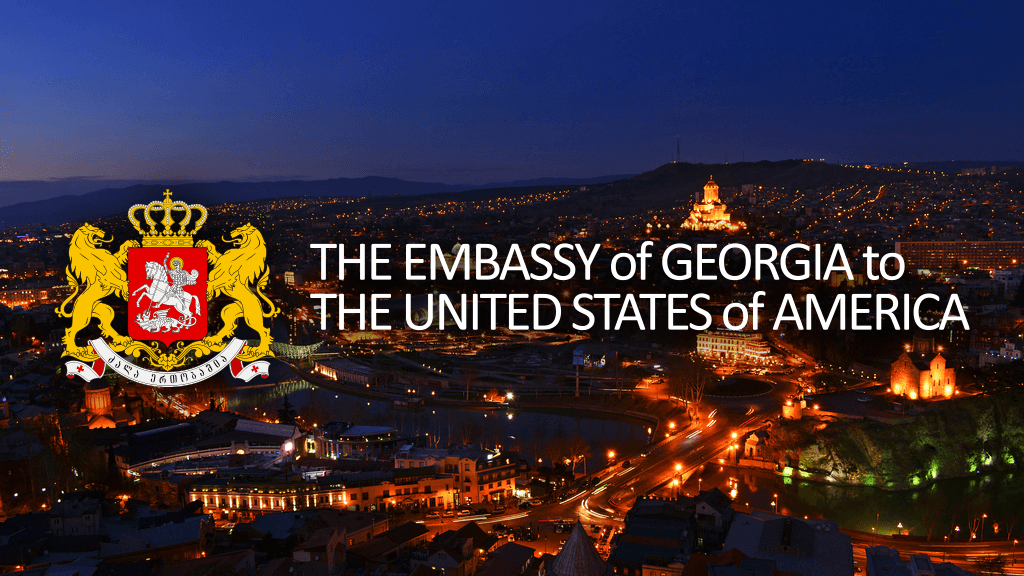COVID-19 პანდემიასთან დაკავშირებით საქართველოს საზღვრის კვეთის რეგულაციები 2 დეკემბრის მდგომარეობით
ყურადღება! შეიცვალა საქართველოში უცხოეთიდან შემოსვლის რიგი წესები და პირობები 2020 წლის 2 დეკემბრიდან
საქართველოში შემოსვლისას იზოლაციას/კარანტინს არ ექვემდებარებიან:
ა) საქართველოში ოფიციალური ვიზიტით ჩამოსული საზღვარგარეთის ქვეყნების/საერთაშორისო ორგანიზაციების ოფიციალური დელეგაციების წევრები – მათ სასაზღვრო პუნქტებზე უნდა წარადგინონ ოფიციალურ ვიზიტამდე უკანასკნელი 72 საათის განმავლობაში ჩატარებული PCR კვლევის დამადასტურებელი საბუთი;
ბ) გერმანიის ფედერაციული რესპუბლიკის, საფრანგეთის რესპუბლიკის, ლატვიის რესპუბლიკის, ლიეტუვის რესპუბლიკის და ესტონეთის რესპუბლიკის მოქალაქეები და ამავე ქვეყნების მუდმივი ბინადრობის (ცხოვრების) უფლების მქონე პირები, თუ საქართველოში მოემგზავრებიან საჰაერო გზით, ამავე ქვეყნებიდან.
მათ სასაზღვრო პუნექტებზე უნდა წარადგინონ საქართველოში შესვლამდე უკანასკნელი 72 საათის განმავლობაში ჩატარებული PCR კვლევის დამადასტურებელი საბუთი ან შემოსვლისას საკუთარი ხარჯით ჩაიტარონ PCR ტესტირება.
აღნიშნული პირები მხოლოდ იმ შემთხვევაში დაექვემდებარებიან იზოლაცია/კარანტინს, თუ სპეციალურ ელექტრონულ ანკეტაში, რომლის შევსებაც გამომგზავრებამდე უნდა მოხდეს, ბოლო 14 დღის განმავლობაში უფიქსირდებათ ევროკავშირის 18 ქვეყნის* გარეთ მოგზაურობა, ან ჩატარებული PCR კვლევის შედეგად დაუდასტურდებათ ახალი კორონავირუსის არსებობა.
*გერმანია, საფრანგეთი, ლიეტუვა, ლატვია, ესტონეთი, ესპანეთი, ლუქსემბურგი, ნიდერლანდები, პოლონეთი, პორტუგალია, რუმინეთი, საბერძნეთი, შვედეთი, ხორვატია, იტალია, კვიპროსი, სლოვენია, ისლანდია.
კორონავირუსით დაინფიცირების ზრდის შესაკავებლად, საქართველოში 9 ნოემბრიდან ამოქმედდა წერტილოვანი შეზღუდვები, კერძოდ: თბილისში, ქუთაისში, ბათუმში, რუსთავში, ზუგდიდში, გორსა და ფოთში – 22:00 სთ-დან – დილის 5-საათამდე. შეზღუდვა ვრცელდება როგორც ქვეითად, ისე სატრანსპორტო საშუალებით გადაადგილებაზე.
შესაბამისად, საქართველოს საერთაშორისო აეროპორტებში ღამის საათებში დაგეგმილი ფრენების მგზავრებმა და მათმა დამხვდურმა/გამცილებელმა პირმა, რეისამდე მინიმუმ რამდენიმე საათით ადრე უნდა დარეკონ მთავრობის ცხელი ხაზის ნომერზე 144 (1), რათა რეისისა და პირადი მონაცემების საფუძველზე მიიღონ ერთჯერადი ნებართვა, რომლის საშუალებითაც აღნიშნული პირები შეძლებენ სახლიდან აეროპორტის მიმართულებით და პირიქით გადაადგილებას. ასევე, შესაძლებელია აეროპორტის ტაქსით სარგებლობა, რადგან მათზე გაცემულია ღამის საათებში გადაადგილების ნებართვა.
აღნიშნული შეზღუდვა არ ვრცელდება: საერთაშორისო სატვირთო გადაზიდვებზე; ოპერაციულ შტაბთან შეთანხმებით, იმ პირებსა და ავტოსატრანსპორტო საშუალებებზე, რომელთა გადაადგილება კრიტიკულად აუცილებელია სამსახურებრივი მოვალეობის შესასრულებლად, მათ შორის სამედიცინო და ფარმაცევტული დანიშნულების ფუნქციით; სტრატეგიული მნიშვნელობის ობიექტებისა და მედიის წარმომადგენლებზე; ასევე მიტანის სერვისის კურიერებზე.
GEORGIA entry regulations as per December 2 update
A number of rules and conditions for entering Georgia from abroad have changed as of December 2, 2020
Please NOTE, that PCR Test is NOT required for Georgian Citizens to enter Georgia! The test results only affect the self-isolation lodging arraignments on the territory of Georgia.
This rule does not apply to international students. They are required to submit a document confirming the PCR examination conducted during the last 72 hours before the visit to Georgia and a 12-day quarantine, at their own expense. Detailed information on the entry conditions of foreign students in Georgia can be found here: https://www.geoconsul.gov.ge/ka/newsFeed/nId/193
The following are not subject to isolation/quarantine when entering Georgia:
- A) Members of official delegations of foreign countries / international organizations arriving in Georgia on an official visit – they must present at the border checkpoints a document confirming the PCR examination conducted during the last 72 hours before the official visit;
- B) Nationals and permanent residence permit holders of the Federal Republic of Germany, the French Republic, the Republic of Latvia, the Republic of Lithuania and the Republic of Estonia if traveling by air to Georgia from the same countries.
The above-mentioned persons must present at the border checkpoints a PCR examination certificate conducted during the last 72 hours before entering Georgia or undergo a PCR examination at their own expense upon entering.
They will only be subject to isolation/quarantine if they have traveled outside 18 EU countries* in the last 14 days or if a PCR examination shows a positive result for a new coronavirus. Travel information must be entered in a special e-form to be filled out before departure.
* Germany, France, Lithuania, Latvia, Estonia, Spain, Luxembourg, Netherlands, Poland, Portugal, Romania, Greece, Sweden, Croatia, Italy, Cyprus, Slovenia, Iceland.
Also, NOTE, that in order to slow down the Covid-19 spread in Georgia, the Inter-Agency Coordination Council ruled to tighten the regulations and introduce precision-targeted in-country restrictions from November 9, 2020. Namely, mobility/transportation gets prohibited from 22:00 to 05:00 in large cities – Tbilisi, Kutaisi, Batumi, Rustavi, Zugdidi, Gori and Poti. Restriction applies to both walking and driving.
Citizens, who are traveling to/from Georgia using International Airports within restricted hours (22:00-05:00), will be entitled to obtain one-off entrance passes by calling the government hotline at 144-1. Passenger and accompanying person/s will be given transportation permission on the basis of the flight and personal information. Passengers can also use the Airport Taxi service for night transportation, as they already have designated passes.
This measure does not apply to: international cargo transportation, mobility of passengers and vehicles with a clearance of the Task Force if and when of critical importance for delivering official duties at pharmaceutical and healthcare facilities, institutions of strategic significance and media outlets, as well as the catering service delivery staff.

